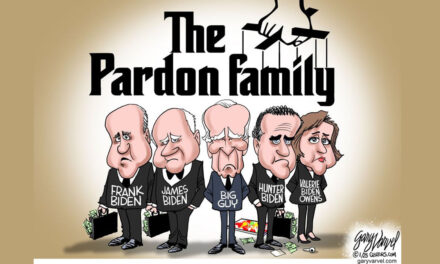
China Softens – Agrees to Negotiate over Trade Deficit
The stock market made a sharp recovery on Monday after China offered to negotiate better trade deals to decrease its trade surplus with the US.
The Dow Jones jumped 669.4 points Monday (the biggest single-day gain since 2008) following a massive loss last week amid concerns of a trade war between the US and China.
The market fluctuations came after China responded to Trump’s trade offenses with a threat to tax up to $3 billion worth of American imports. Now, Beijing is offering to purchase more US-made semiconductors and is considering lowering its 25% tariff on American-made cars.
“Everyone has been worried about a trade war, but we shouldn’t because we hold most of the high cards,” explains Gordon Chang, an expert on China and North Korea.
History shows us that trade-surplus countries generally suffer more in trade wars. As Chang notes in an article he wrote for The Daily Beast, nearly 89% of China’s overall merchandise trade surplus is related to sales in the US; not to mention the fact that our GDP, at $19.4 trillion, is much larger than China’s GDP of $12.8 trillion.
“The Chinese really have no way to win a trade war with the US if they face a determined American president,” says Chang. “US presidents have not been willing to use US national power to protect American businesses and workers. And I think finally we now have a glimpse of someone in the White House who actually understands that we can prevail on this.”
China’s offers to negotiate are directly related to the tariffs on steel and aluminum that went into effect last Friday, as well as the additional $50-$60 billion in tariffs Trump proposed last week as a response to claims of intellectual property theft.
These tariffs sparked fears of a trade war with China, but as newly-appointed Economic Adviser Larry Kudlow explains, these taxes are part of a “Trumpian” way of negotiating. Plus, China needs to be punished for “unfair trading practices.”
Treasury Sec. Steven Mnuchin said Sunday the Administration is “not afraid of a trade war” and will proceed with the tariffs. “We’re also working on investment restrictions,” he continued. “But we are simultaneously having negotiations with the Chinese to see if we can reach an agreement.”
The Administration’s primary goals are to cut the trade deficit down from $375 billion to $275 billion and to establish a larger presence in China’s massive economy. The Administration would also like to see China abolish rules that require foreign companies to hand over intellectual property to Chinese partners in order to operate in the country, reduce its 25% tariff on American cars, and provide the US with greater access to Beijing’s financial sector.
Author’s Note: Things are certainly improving, but this is not over. As economist and Asia expert Mark Williams warns, “China may be able to come up with some big ticket imports to allow it to appear to be trying to reduce the bilateral trade imbalance.”
China unlikely to change its laws on intellectual property, says Williams, adding that such practices are a “key element” of Beijing’s efforts to develop the Chinese economy.
























I had to paws on this as reading Dempsey’s tail of howling at the moon about my best friend was…
Hammon, you guys are big on personality but light in the loafers on facts. You say I am wrong on…
Dunger is so wrong on everything that he’s funny. Like the movie slingblade. Haha funny or queer funny.
The idiots in this country would love to have that commie cunt for president
I want my dog to leave a huuuuuge carbon paw print